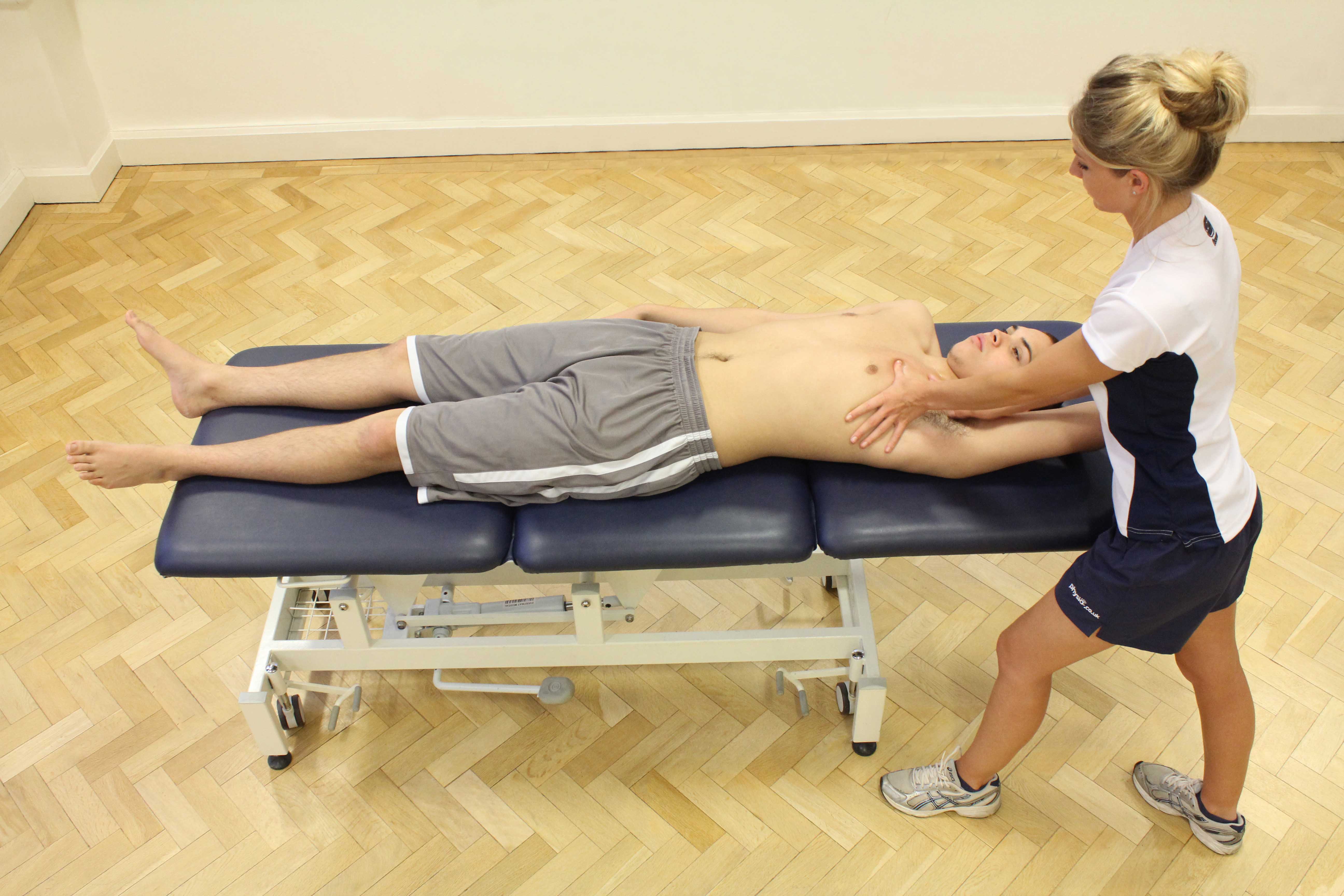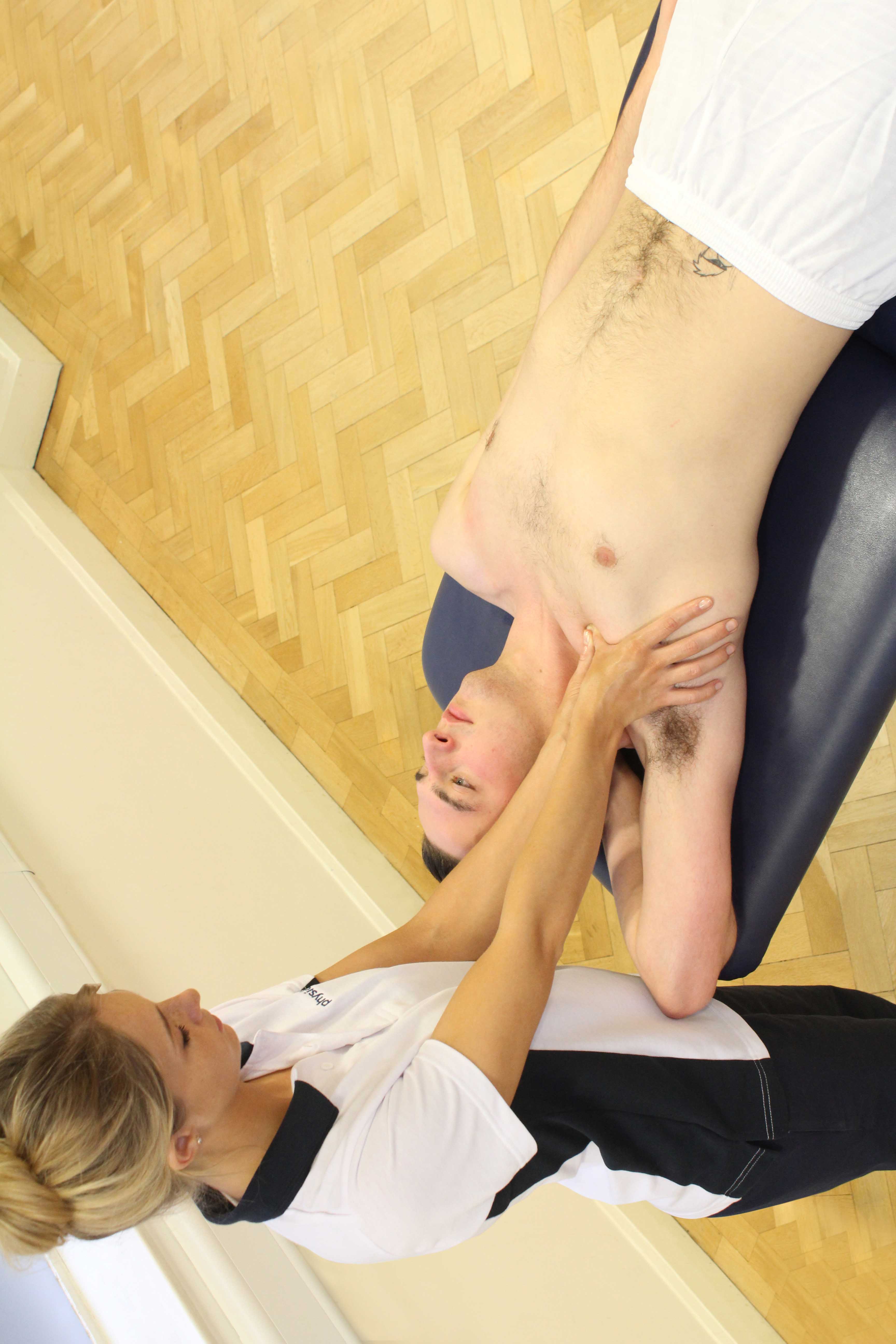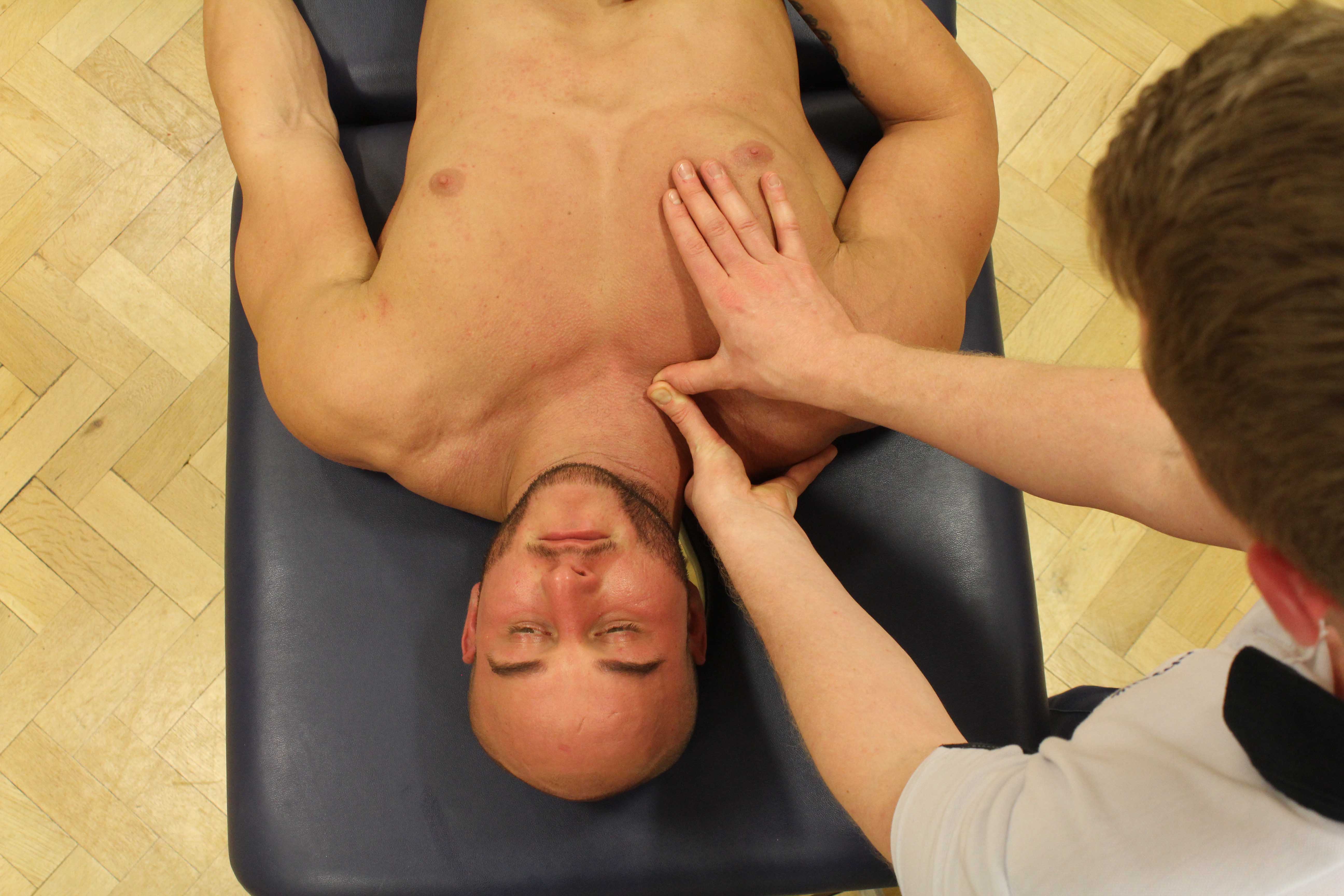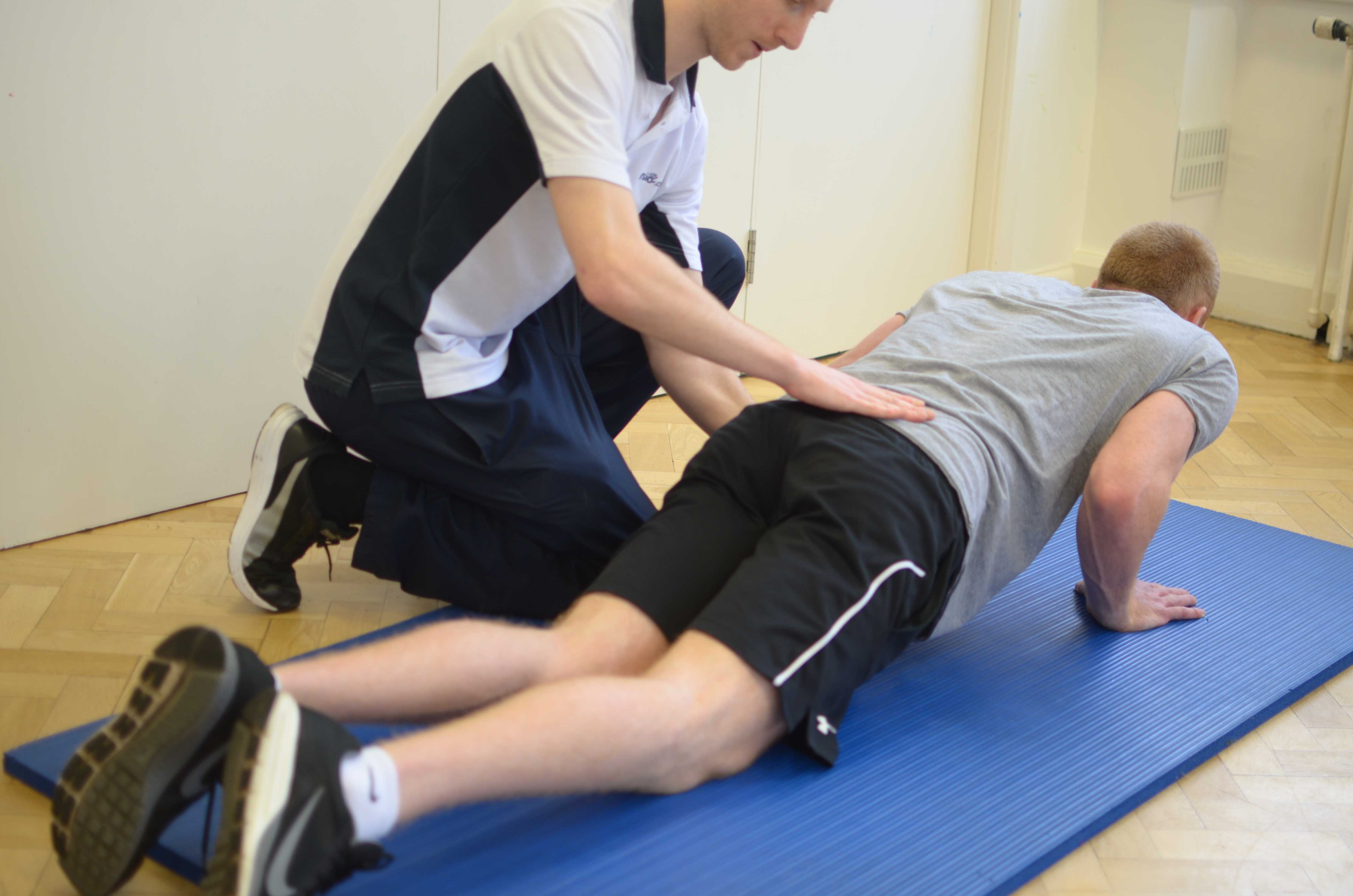What are tight pectorals?
There are two pectoral or chest muscles; pectoralis major and pectoralis minor. Pectoralis major is a fan shaped muscle originatingfrom the chest bone (sternum), collar bone (clavicle) and upper ribs, inserting into the upper arm bone (humerus).
Pectoralis minor is a smaller muscle located below the pectoralis major which originates from the upper ribs and inserts into the shoulder blade (scapula).
Both muscles have important roles in carrying out various movements of the arm and scapula and therefore they are prone to becoming tight and painful. Physiotherapy is important if you think you may have tight pectorals.
 Above: Soft tissue massage of the pectrol muscle by experienced therapist
Above: Soft tissue massage of the pectrol muscle by experienced therapistHow does tight pectorals occur?
People often complain of tight pectoral muscles if they do a large amount of upper limb exercises in the gym. These include chest and bench presses which are not counterbalanced with other exercises. This is known as a muscle imbalance injury. It is also possible to develop tight pectorals with jobs or activities that cause rounded shoulder such as typing and painting.
What are the symptoms of tight pectorals?
Symptoms of tight pectorals include pain, poor posture and reduce range of movement of the arms and shoulders. If the condition becomes more severe, it may affect your sleep. Other common symptoms include:
What should I do if I have tight pectorals?
If you suspect you may have tight pectorals, it is important to begin a physiotherapy treatment programme as soon as possible. You may also benefit from applying heat to the area to loosen and relax the muscle.
 Above: Trigger point massage applied to the chest muscles by a specialist MSK therapist
Above: Trigger point massage applied to the chest muscles by a specialist MSK therapistPhysiotherapy treatment for tight pectorals.
There are a number of different treatment options for tight pectoral muscles. Your physiotherapist will decide on the best treatment to suit your goals. Physiotherapy may include a tailored exercise programme with strengthening and stretching exercises, electrotherapy and heat therapy. Other treatments include:
What shouldn’t I do if I have tight pectorals?
If you notice symptoms of tight pectorals, you should avoid any activities that may aggravate your injury. You should not ignore your symptoms as this will delay your recovery and could cause more long term complications.
 Above: Trigger point massage applied to the chest muscles by a specialist MSK therapist
Above: Trigger point massage applied to the chest muscles by a specialist MSK therapistCould there be any long-term effects from tight pectorals?
Tight pectoral muscles are usually resolved with an effective physiotherapy programme. However, if you do not receive appropriate treatment as soon as possible, it will become more difficult to alleviate your symptoms.
 Above: Progressive strength training for the chest muscles supervised by specialist MSK physiotherapist
Above: Progressive strength training for the chest muscles supervised by specialist MSK physiotherapistTo arrange a physiotherapy appointment call Physio.co.uk on 0330 088 7800 or book online.

 0330 088 7800
0330 088 7800

































